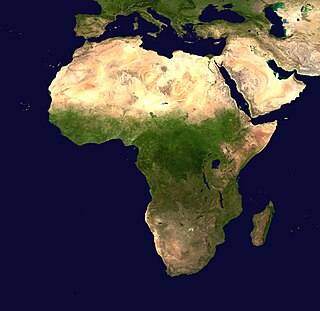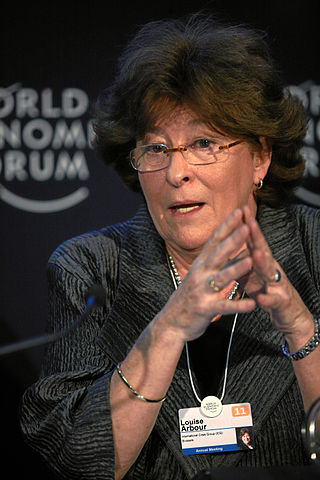Liberal feminism,also called mainstream feminism,is a main branch of feminism defined by its focus on achieving gender equality through political and legal reform within the framework of liberal democracy and informed by a human rights perspective. It is often considered culturally progressive and economically center-right to center-left. As the oldest of the "Big Three" schools of feminist thought,liberal feminism has its roots in 19th century first-wave feminism seeking recognition of women as equal citizens,focusing particularly on women's suffrage and access to education,the effort associated with 19th century liberalism and progressivism. Liberal feminism "works within the structure of mainstream society to integrate women into that structure." Liberal feminism places great emphasis on the public world,especially laws,political institutions,education and working life,and considers the denial of equal legal and political rights as the main obstacle to equality. As such liberal feminists have worked to bring women into the political mainstream. Liberal feminism is inclusive and socially progressive,while broadly supporting existing institutions of power in liberal democratic societies,and is associated with centrism and reformism. Liberal feminism tends to be adopted by white middle-class women who do not disagree with the current social structure;Zhang and Rios found that liberal feminism with its focus on equality is viewed as the dominant and "default" form of feminism. Liberal feminism actively supports men's involvement in feminism and both women and men have always been active participants in the movement;progressive men had an important role alongside women in the struggle for equal political rights since the movement was launched in the 19th century.
Feminist legal theory,also known as feminist jurisprudence,is based on the belief that the law has been fundamental in women's historical subordination. Feminist jurisprudence the philosophy of law is based on the political,economic,and social inequality of the sexes and feminist legal theory is the encompassment of law and theory connected.The project of feminist legal theory is twofold. First,feminist jurisprudence seeks to explain ways in which the law played a role in women's former subordinate status. Feminist legal theory was directly created to recognize and combat the legal system built primarily by the and for male intentions,often forgetting important components and experiences women and marginalized communities face. The law perpetuates a male valued system at the expense of female values. Through making sure all people have access to participate in legal systems as professionals to combating cases in constitutional and discriminatory law,feminist legal theory is utilized for it all.
Mayo Moran is a Canadian lawyer and academic. From 2006 to 2014,she was Dean of the Faculty of Law of the University of Toronto. She was the first female dean of that faculty. In addition,since 2014,she has been Provost of Trinity College,Toronto.

KimberléWilliams Crenshaw is an American civil rights advocate and a leading scholar of using critical race theory as a lens to further explore and examine the Tulsa race massacre. She is a professor at the UCLA School of Law and Columbia Law School,where she specializes in race and gender issues.

African feminism includes theories and movements which specifically address the experiences and needs of continental African women. From a western perspective,these theories and movements fall under the umbrella label of Feminism,but it is important to note that many branches of African "feminism" actually resist this categorization. African women have been engaged in gender struggle since long before the existence of the western-inspired label "African feminism," and this history is often neglected. Despite this caveat,this page will use the term feminism with regard to African theories and movements in order to fit into a relevant network of existing Wikipedia pages on global feminism. Because Africa is not a monolith,no single feminist theory or movement reflects the entire range of experiences African women have. African feminist theories are sometimes aligned,in dialogue,or in conflict with Black Feminism or African womanism. This page covers general principles of African feminism,several distinct theories,and a few examples of feminist movements and theories in various African countries.
Martha Albertson Fineman is an American jurist,legal theorist and political philosopher. She is Robert W. Woodruff Professor of Law at Emory University School of Law. Fineman was previously the first holder of the Dorothea S. Clarke Professor of Feminist Jurisprudence at Cornell Law School. She held the Maurice T. Moore Professorship at Columbia Law School.

Social equity is concerned with justice and fairness of social policy. Since the 1960s,the concept of social equity has been used in a variety of institutional contexts,including education and public administration.

Penelope (Penny) Andrews is a South African and American legal scholar.
Noelle W. Arnold,Ph.D.,is a Senior Associate Dean,Professor and the director of the EdD in Educational Administration program in the College of Education and Human Ecology at Ohio State University. She is the first female African American president of the University Council for Educational Administration,an academic organization for those researching educational administration in North America. A former administrator at the district and state level,she has served as a consultant for National Public Radio and throughout the United States advising districts in school improvement,culture and race mediation,STEM leadership for education and teaching and leading in urban and rural contexts.
Lori Gail Beaman is a Canadian academic. She is a professor in the Department of Classics and Religious Studies of the University of Ottawa,and holder of the Canada Research Chair in Religious Diversity and Social Change. She has published work on religious diversity,religious freedom,and the intersections of religion and law. She was made a fellow of the Academy of the Arts and Humanities of the Royal Society of Canada in 2015,received an Insight Award from the Social Sciences and Humanities Research Council in 2017 and received an honorary doctorate from Uppsala University in 2018.

Women in law describes the role played by women in the legal profession and related occupations,which includes lawyers,paralegals,prosecutors,judges,legal scholars,law professors and law school deans.
Deborah Flemister Mullen is an ordained pastor in the Presbyterian Church (U.S.A.) and a theological educator,specifically in the fields of modern American Christianity and Black Church Studies. She retired in January 2018 as Vice President for Equity,Diversity,and Inclusion and Associate Professor of American Christianity and Black Church Studies at Columbia Theological Seminary. Her work actively engages the ongoing debates in American religion and civil society surrounding race,sexuality and social justice. In the academic field she focuses on the creation and leading of graduate theological education curriculum that prepares religious leaders for ministries throughout the world and promotes growth in academic institutions.
Ratna Kapur is a law professor and former director of the Center for Feminist Legal Research in New Delhi,India [1995–2012].

Ruth Halperin-Kaddari is an Israeli legal scholar and international women's rights advocate who is known for her work on family law,feminist legal theory,women's rights in international law,and women and religion. She was a member of the United Nations Committee on the Elimination of Discrimination against Women from 2006 to 2018,and was the committee's vice chair during several terms. She is Professor of Law at the Bar-Ilan University and is the founding Academic Director of the Ruth and Emanuel Rackman Center for the Advancement of the Status of Women. She is also involved in international academic collaborations on the theme of women,state,and religion,and participates in international litigations as an expert on Israeli family law.
The illusion of inclusion has been defined as the "sometimes subtle ways that the standards can appear to adequately address race while at the same time marginalizing it."
Malinda S. Smith is a Canadian political scientist. She is the inaugural Vice-Provost of Diversity,Equity,and Inclusion,an Associate Vice President Research and a full professor of political science at the University of Calgary. Previously,she was a professor of political science at the University of Alberta,where she also held a 2018 Pierre Elliott Trudeau Foundation Fellow and served as a Provost Fellow in Equity,Diversity,and Inclusion Policy in the Office of the Provost. She specializes in equity,social justice,diversity and intersectionality studies,particularly as they are practiced in higher education institutions,as well as in international relations,comparative politics,African security studies and international inequality.
J. Camille Hall is the former vice chancellor for diversity and inclusion at the University of Missouri,Kansas City. She was the inaugural Associate Dean for Equity and Inclusion and the first black female full professor in the College of Social Work at the University of Tennessee. Hall's research focuses on African American risk and resilience and multicultural education.
Diversity,equity,and inclusion refers to organizational frameworks which seek to promote "the fair treatment and full participation of all people",particularly groups "who have historically been underrepresented or subject to discrimination" on the basis of identity or disability. These three notions together represent "three closely linked values" which organizations seek to institutionalize through DEI frameworks,even if some scholars argue that,for instance,diversity and inclusion should be decoupled in some cases. Some frameworks,primarily in Britain,substitute the notion of "equity" with equality:equality,diversity,inclusion (EDI). Other variations include diversity,equity,inclusion and belonging (DEIB),justice,equity,diversity and inclusion,or diversity,equity,inclusion and access.
Ellie Hisama is a Japanese-American music theorist who is dean of the faculty of music and a professor of music at the University of Toronto. Hisama's work focuses on issues of gender,race,sexuality,and the sociology of music.
Fatima Seedat is a South African feminist,Islamic scholar and women's rights activist. She is known for her scholarly work on gender and Islamic law,and Islam and feminism.





